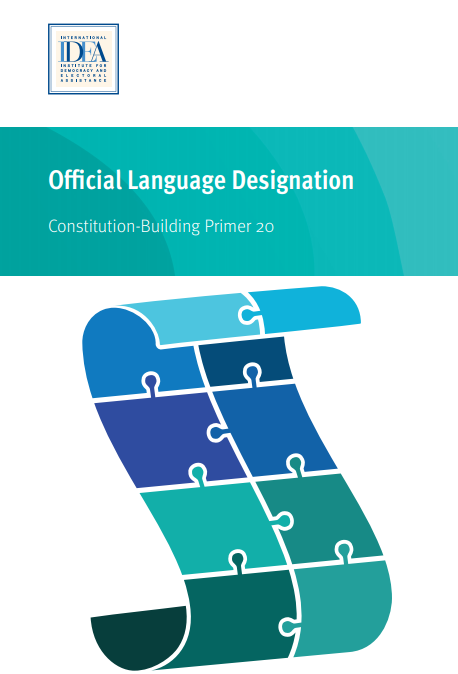Official Language Designation

Modern constitutions typically contain a variety of provisions on language. They may designate one or more official languages, each with a different kind of legal status. Constitutions may also create language rights, usually held by minority-language speakers, granting groups and individuals the right to communicate with, and receive services from, the government in their native tongue. In systems of multi-level governance, constitutions may vest the authority to designate official language(s) for each order of government.
This Primer addresses the role of language in constitutional design, and the key considerations, implications and potential challenges that arise in multilingual states. It discusses the range of claims around language as a constitutional issue, and the potential consequences of successfully addressing these claims—or failing to do so.
International IDEA’s Constitution-Building Primers are designed to assist in-country constitution-building or constitutional-reform processes by helping citizens, political parties, civil society organizations, public officials and members of constituent assemblies make wise constitutional choices. They also provide guidance for staff of intergovernmental organizations and other external actors working to provide well informed, context-relevant support to local decision-makers.
Each Primer is written as an introduction for non-specialist readers, and as a convenient aide-memoire for those with prior knowledge of, or experience with, constitution-building. Arranged thematically around the practical choices faced by constitution-builders, the Primers aim to explain complex constitutional issues in a quick and easy way.
You can also download this publication from the International IDEA website.